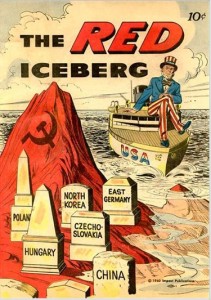After watching Unforgiven last week and discussing older forms of Westerns, it had me thinking about how I was initially exposed to the genre of Westerns. As far as I can remember, my first true experience with the Western genre wasn’t through a movie, a television series or any of the typical media outlets, but rather through a video game. When I was in 8th grade, I bought a video game called Red Dead Redemption, opening my eyes to what the Western genre was. It sparked my curiosity immensely, leading to me watching various famous Westerns such as Butch Cassidy & The Sundance Kid and The Good, The Bad, & The Ugly. The weirdest part out of all of that for me? Out of every Western that I’ve seen thus far in my life, the story of Red Dead Redemption is just as good, if not better, than all of them.
Red Dead Redemption tells the story of John Marston, one of the most infamous outlaws of the West. Rather than play as this daring outlaw in his prime, the game starts in 1911, when the American Frontier is slowly dying out to commercialism and Marston is in the twilight of his career. The game opens with Marston being taken from his family by the Bureau of Investigation (now FBI), telling him that the only way he can see his family again and avoid a life behind bars is if he works with them to capture his former partners. It is a gripping tale, filled with many unique characters and events that have the player fully invested from the beginning. Marston is the perfect antihero that fits the Western story from the beginning. He is a very similar character to William Munny, in the sense that he is a guy that you love to hate, but over time your feelings for him become ambiguous as you learn more about his life. To show an example of his character, here is a quote pulled directly from Marston himself during the game:
Thinking about this game made me realize the newer abilities of video games to tell these compelling stories. In the early days, video games were simply about collecting points and breaking high scores. There was no story, no character development, no cinematic experience. You would have never heard dialogue in a game, let alone a quote as powerful as the one above. But as graphics systems grew and games were able to hold more memory, characters became a little more fleshed out, worlds became bigger, and the stories became grander. For example, here are side-by-side images of the game Doom, released in 1993, and Red Dead Redemption, released 17 years following.
As you can see, by 2010 the ability to recreate natural life was almost completely perfected. As video games became more realistic, their ability to tell stories of the same nature grew. Games like Red Dead, Bioshock, and Fallout all tell stories that rival some of the best tales Hollywood has ever created. This opinion really makes me a product of my generation, as even 10 years ago such an idea would have been completely absurd. However, using myself as an example, I played this game originally just for the entertainment value but left having experienced one of the most gripping stories of all time (not to spoil anything, but the ending would have made Clint Eastwood himself proud), and a new appreciation for the Western genre. Video games today provide an opportunity to become more invested than ever in a story, as you are quite literally the main character of the game. The art of storytelling has found a new medium in video games, and I hope to it will continue in that trend as games become even more realistic than they are now; allowing kids like myself to become more cultured to the world and gain more exposure to newer experiences. If not for this game, Unforgiven may very well have been my first Western ever.




